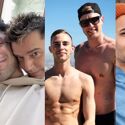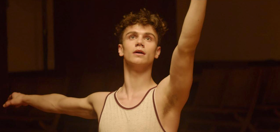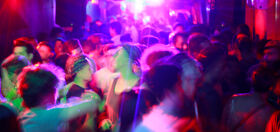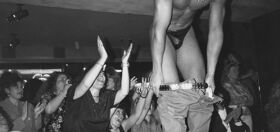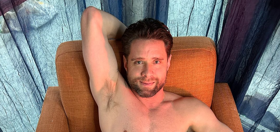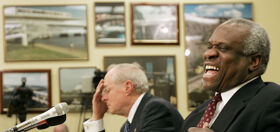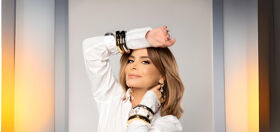
Last week, as the coronavirus curve started to flatten in my home state of New York, sobering news rocked my strange new world: COVID-19, the deadly disease caused by the novel coronavirus, continues to infect black Americans at an alarmingly disproportionate rate. Thirty percent of COVID-19 patients in the U.S. are black.
When I read the latest data issued on April 17 by the Centers for Disease Control, a wave of emotions washed over me. We’re about 13 percent of the nation’s population, and yet we account for nearly one-third of all COVID-19 hospitalizations.
In New York City, now the pandemic’s epicenter, twice as many blacks are succumbing to coronavirus complications as whites, while Latinos here also are dying at a higher rate than whites and Asians.
First, I felt a wave of shock. I’m relatively young and in good physical health. Holed up for weeks in my Lower East Side apartment, I’d been more concerned about my parents in Florida and Georgia and loved ones around the world with compromised immune systems. For the most part, I’d put aside my raging hypochondria to worry about people other than me. Did I now have to include myself among the high-risk?
How about we take this to the next level?
Our newsletter is like a refreshing cocktail (or mocktail) of LGBTQ+ entertainment and pop culture, served up with a side of eye-candy.
I know it’s not that simple. Being black doesn’t make me inherently more susceptible. It’s the social and economic ramifications of racial disparity in the U.S. (typically lower incomes, lack of access to solid medical care, and decreased capacity to incorporate social distancing into everyday life) that make blacks more vulnerable. Although I don’t have the same financial concerns that plague many blacks in the U.S. and put them at increased risk, the CDC’s statistic still feels like a gut punch.
Then, I felt a wave of anger. Haven’t black people in America suffered enough? Couldn’t the virus have spared us the disproportionate infestation?
Later, I felt a wave of resignation. Well, of course, it’s killing blacks at a higher rate. Why wouldn’t it? Doesn’t pretty much everything else in this country?
Through it all, even before I was privy to the CDC’s intel, I’ve felt waves of fear — and not just coronavirus fears. One Monday morning when I went out to the supermarket wearing a bandana face mask my husband made for me, I couldn’t stop thinking about the irony. In normal times, the facial protection that was supposed to be saving my life could get me killed.
To many Americans, a black man wearing a bandana to cover half of his face could mean just one thing: Danger! As I considered the irony, my heart dropped a little. What if a gang-banger drove past me, saw my red bandana, and starting shooting. He might think I, not the coronavirus, was the mortal enemy? The streets were deserted enough to make me an easy moving target.
I know some of my thoughts and emotions have not been entirely rational. It’s human nature to go a little off the deep end during a crisis. But there is one thing I have not been irrational about: the state of the union.
Having spent 10 of the last 13 years living abroad in developing countries, I never thought I’d return to my home country, the one President Donald Trump promised to make great again, and have to wait in lines winding around the block to buy groceries. How did this go from being a country with a seeming surplus of everything to one where shopping for toilet paper is like a scavenger hunt?
When I was living in Bangkok for several years, I used to secretly side-eye the locals who walked around every day wearing face masks. That, I’d think, was taking germophobia to an extreme. Now I’m one of them. I thought it couldn’t happen here.
While I’m gasping in these waves of emotions, I’m thinking, Now do you get it? As a gay man of a certain age, I have spent decades fearing a different virus, one it took the U.S. government years, not months, to seriously acknowledge.
Gay men know what it feels like to be afraid to not keep your distance, to constantly face losing loved ones, to cower in the towering shadow of an unpredictable, invisible killer. Now do you get it? I wonder. Many of us have been prepping for this our entire lives. Welcome to the club.
A friend of my husband said he’s been having trouble mustering up the appropriate fear of COVID-19. It’s not that he doesn’t care. It’s just that he, like so many gay men 50 and under, has spent his life building up a suit of armor. Meanwhile, much of the rest of the world didn’t seem to care that AIDS was decimating a generation of gay men.
I’ve never not known adult life without the threat of AIDS, so I can relate. My reaction to the coronavirus has bordered on panic at times, but it’s never approached the heights of terror I felt when gay men were dropping like flies in the ’90s because of AIDS.
The black and LGBTQ communities have been living in fear for decades. To go outside has been to risk our lives long before anyone heard of COVID-19. I’m not comparing the virus to racism and homophobia. They aren’t nearly as contagious, but in the wrong political climate, they, too, can spread like a wildfire.
I get the unprecedented fear and the hard-to-process emotions the coronavirus incites. I feel them, too. But I’m angry because it took so long for so many to understand what gay men have been dealing with for decades, and I’m not sure they’re drawing the parallels on their own.
But if they eventually do, as the old saying goes, better late than never. This, too, shall pass, and when it does, I’m hoping we’ll wake up to a brand new day — one where our concerns encompass more than what directly affects us. I’m praying for a new day dawning where we think about what it’s like to walk in the battered shoes of the less-than-privileged and not just cling to “progressive” ideals because that makes us feel superior to the less woke.
If somewhere over the rainbow, bluebirds do indeed fly, I hope they’ve prepared a happy tune and we all get to sing along.
Jeremy Helligar is a New York City-based journalist from the U.S. Virgin Islands and the author of the travelogue/memoir Is It True What They Say About Black Men?


